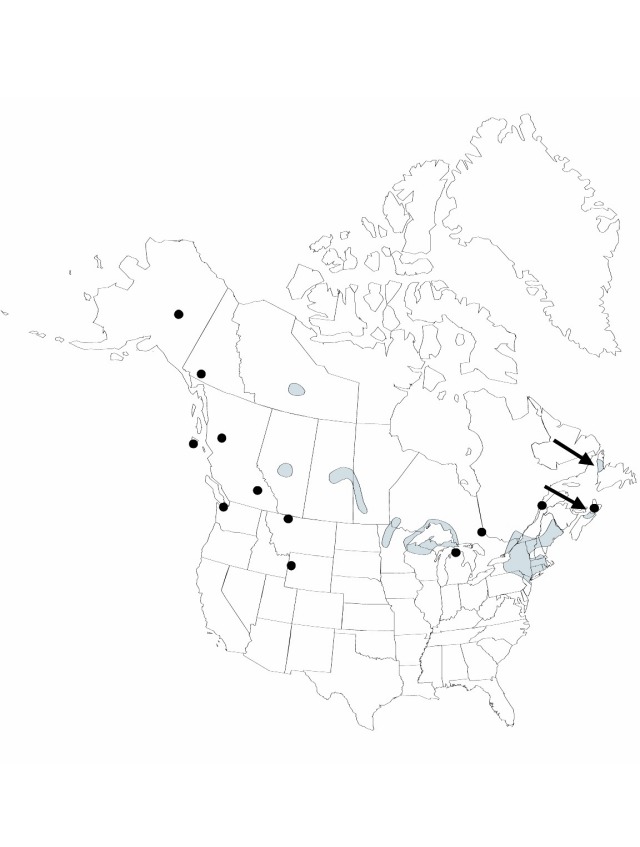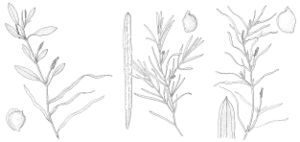Potamogeton obtusifolius
in J. C. Röhling et al., Deutschl. Fl., ed. 3 1: 855. 1823.
Rhizomes absent. Cauline stems slightly compressed, without spots, 35–90 cm; glands yellow-green to gold, 0.2–1 mm diam. Turions terminal, abundant, 3.5–7.8 cm × 2.3–5.1 mm, soft; leaves ± 2-ranked; outer leaves 3–4 per side, base not corrugate, apex apiculate to obtuse; inner leaves undifferentiated. Leaves submersed, ± spirally arranged, sessile, flaccid; stipules persistent, inconspicuous, convolute, free from blade, white, not ligulate, 0.6–1.8 cm, fibrous, rarely shredding at tip, apex obtuse; blade light green to somewhat reddish, linear, not arcuate, 3–8.2 cm × 1–3.5 mm, base slightly tapering, without basal lobes, not clasping, margins entire, not crispate, apex not hoodlike, obtuse or round-apiculate, lacunae in 1–3 rows each side of midrib; veins 3. Inflorescences unbranched, emersed; peduncles not dimorphic, axillary, erect, rarely recurved, cylindric, 0.8–1.9(–4.2) cm; spike not dimorphic, cylindric, 8–13 mm. Fruits sessile, olive-green to brown, obovoid, turgid, abaxially keeled or not, laterally keeled or not, 2.5–3.6 × 1.7–2.4 mm, lateral keels when present without points; beak erect, 0.8–1 mm; sides without basal tubercles; embryo with 1 full spiral. 2n = 26.
Phenology: Flowering and fruiting summer–fall.
Habitat: Medium- to low-alkaline waters of lakes and slow-flowing streams
Elevation: 50–2000 m
Distribution

Alta., B.C., Man., N.B., N.B., Nfld. and Labr. (Nfld.), N.W.T., N.S., Ont., P.E.I., Que., Sask., Yukon, Alaska, Conn., Idaho, Maine, Mass., Mich., Minn., Mont., N.H., N.J., N.Y., Pa., R.I., Vt., Wash., Wis., Wyo., Eurasia.
Discussion
Potamogeton obtusifolius is a distinctive linear-leaved species with the leaf blades round at the apex, especially when fruiting inflorescences 5–7 mm wide are present. This is unusually wide for one of the linear-leaved species.
Two hybrids, Potamogeton obtusifolius × P. pusillus (= P. × saxonicus Hagström) and P. friesii × obtusifolius (= P. × semifructus A. Bennett ex Ascherson & Graebner), have been described.
Selected References
None.
